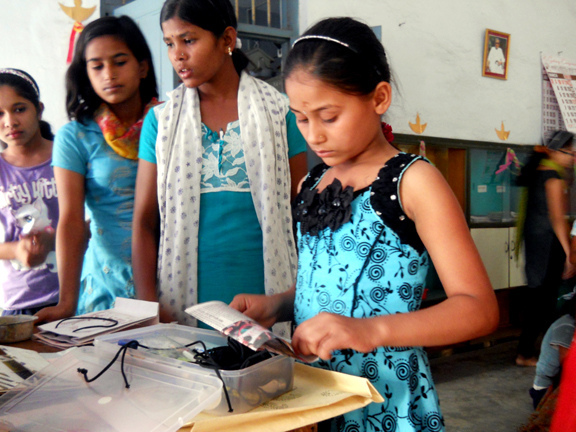Classroom Management: 4 Approaches to Encourage Your Students to Become Self-Motivated Superstars

As different situations arise, you will discover that different approaches need to be taken to manage a classroom effectively. The root of the problem should be the key factor in deciding on which classroom management approach to use.
Many teachers find that self-discipline approaches work the best for their students. There are several different sub-versions that you may find work the best for your particular classroom. The self-discipline approach is based on the belief that students are responsible individuals who can assess and correct their own misbehavior, and that teachers and students have trusting relationships built on respect. With its self-governing style, the self-discipline approach has four models.
- Reality Therapy.
Developed by psychiatrist William Glasser in the 1960s, reality therapy is used to guide students in becoming responsible individuals who are able to satisfy their own needs for the benefit of themselves and others. Despite its maturity, this approach has stood the test of time and is still very relevant today. This approach was developed with the idea that students know their own needs and wants, and will make changes accordingly to get closer to where they want to be. Teachers are supposed to help students with making the right choices, while avoiding the wrong choices and rational students should make the final decision themselves. If students happen to opt for the wrong choice and misbehave, teachers and students work together to first evaluate the misconducts. They should then devise an applicable plan for students to make amends.
As trust and responsibility are given to students, students should work on their own to correct their misbehaviors. If students fail and break the trust, engaging in misbehaviors, teachers should remove them from the class until the students are committed to trying again to earn back the trust. This approach maintains that the different styles of parenting should not be the acceptable reasons for misbehaving. When misbehavior occurs, ask what the students are doing instead of asking the students for reasons, because students should be trusted to analyze their own misbehavior and seek plans to correct their bad behaviors.
In this model, holding classroom meetings and discussions are necessities. Students should participate to develop the class rules and determine the consequences for breaking those rules. When students agree, the rules will be adhered to at a higher level. When holding these meetings, you should ensure that students understand that the meetings are held for everyone’s benefit because rules and consequences might require adjustments, which all students should be aware of. As trust and responsibility are the essential components of the self-discipline approach, teachers and students should be able to communicate without barriers.
This approach implies that the parties who are unable to adhere to the rules are the cause of receiving the consequences. In a case where students are not prepared when they are expected to be, students are the cause for their receiving consequences. Given that this approach respects everyone, and encourages students to be responsible individuals, if unsatisfactory action takes place, anyone and everyone should express their opinions and dissatisfaction accordingly. Possible solutions should be decided upon by open discussions.
- Inner Discipline.
Developed by Barbara Coloroso, this discipline takes a longer route in correcting student misbehavior. As the name says, the goal here is to help students develop inner discipline. When students have self-discipline, students will have control and responsibility for their own actions. Whether it is a choice with a positive outcome or not, unless there is the threat to the student, teachers should let students make their own choices.
In this discipline, when students misbehave, teachers should ask what students and teachers could do together to change. Students and teachers cooperate to build a community where they share the power. An underlying premise of this approach is that students do not have lasting discipline when quick-solutions such as reward systems are used.
Coloroso believes that there are three types of teachers: “brick-wall”, “jellyfish” and “backbone”. As the names suggest, “brick-wall” teachers are strict, demanding students to follow the rules without questioning and there are no exceptions. “Jellyfish” teachers enforce the rules like the way jellyfish moves. The rules are not clear and teachers often change the rewards and punishments, so students cannot expect consistency from these teachers. Lastly, “backbone” teachers give strong support, but from behind.
- The Kounin Model.
Research by Jacob Kounin in 1970 who was inspired by William Glasser, found that the difference between teachers is not how they deal with misconducts, but how they prevent them in the first place. His conclusion drew four factors that explain the classroom management success.
First is “with-it-ness”—that is, teachers’ alertness and awareness of the classroom at all times. Teachers should let students know that they have the full view of the classroom, and as soon as the teacher spots a misbehavior, the teacher indicates visually (facial expression) to the student that he or she has seen the misbehavior, and this is usually enough to stop the behavior, without the rest of the class being aware. Although such a look is enough in many cases, some cases will obviously require more action than that, with the teacher addressing the situation with everyone who was involved in the misconduct.
Second is “overlapping”, which really is just another word for “multi-tasking.” When the teacher has divided the class into working groups to look at different topics and activities, this allows teachers to have easy access to every student, provide specific help if needed, and at the same time, keep an eye on the other students. The “overlapping” of activities in the classroom allows efficiency, and these activities are all controlled by the teacher.
Third is “group focus”, which means getting every single student involved and concentrating on the classroom activity. One way of doing it is by having a portion of students’ grades attributed to participation. Teachers can ask students questions that are up for anyone to answer, then students will all be concentrating and thinking about the question, eager to respond for good grades. Another method that is often used, is randomly selecting students to answer questions. To avoid embarrassment, and not knowing who will be the next selected one, students’ focus is on their teachers.
Fourth and last is “movement management”, which includes momentum and smoothness. Teachers have to ensure that students are continually working and are not sidetracked or distracted. Students can raise their hand if they have questions, and this ensures the smooth flow of the class without interruptions. If the class is held often, another way could be for students to write down questions and/or concerns about the class materials on pieces of paper and turn them in at the end of the session. In the next class, materials can be reviewed, with assistance from the questions previously written down by students. Teachers may also prepare more challenging questions.
- The Jones Model
In an historical 1979 study, Frederick Jones has found that nearly 50 percent of teaching time is wasted due to children’s misbehavior, of which approximately 80 percent is talking in class. Jones’ argument is that teachers can work on not losing the valuable time by having these techniques: set limits, effective body language, incentive systems and resourceful help.
Setting limits will help students know what to do in every situation, from small matters like pencil sharpening, to big matters like being ill. By doing this, teachers are able to have students find their own ways of dealing with situations, without major disruptions to other students. Body language is very effective, and easily implemented, and students usually stop the misbehavior with mere eye contacts from teachers. An incentive system concentrates on taking away benefits from students when they misbehave.
Efficient help is important as students start to misbehave when they start to fall behind. In Jones’ study mentioned earlier, he found that teachers use an average of four minutes to discipline students when they misbehave, and that, he says, can actually be reduced significantly. One of the ways to do this is getting others who are more settled to help the students who are struggling.
None of these methods will work in all cases, so teachers should always have back-up plans such as isolation from class.





